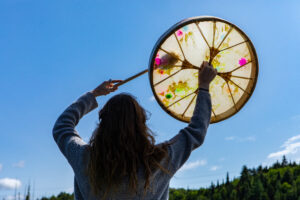Project Overview
A complete guide for financial literacy and capability
Today’s world is full of opportunities. As changes occur and our society and community evolves, those who are well prepared will be able to take advantage of them. There are opportunities to do new things, generate new ideas, accomplish new tasks, and set new goals. Although change creates stress for many, for those prepared to take control of their lives, the future can hold much promise.
Taking control of one’s life can mean many things – pursuing a good and relevant education, building personal and family relationships, setting priority goals and objectives, developing skills related to areas of personal passion (the things we love to do), and so on. Taking control of one’s life helps to instill confidence, determination, and commitment. These, in turn, can lead to accomplishment, personal success, and happiness.
If we don’t take control of our own lives, we are more vulnerable to outside influences. The goals and objectives of others may lead us to where they want us to go – not necessarily where we want to go. Knowledge and skills can help people take more control.
The world of money is one area where many people often feel they lack control. They may even feel they are out of control. Many, if not most, Canadians never had much in the way of financial education – at school or from parents. We hope to change that for the next generation.
Schools are now starting to include financial education in the curriculum. Equipped with knowledge, skills, and experience, young people will be able to plan for, and take more control over, their money and financial affairs.
Indigenous culture, tradition and territories are unique and integral to Indigenous communities. It is fundamental to who we are, where we come from, where we learn, work, and live, how we relate, and to our overall wellbeing. It is important to create financial learning that accommodates this. The Canadian Foundation for Economic Education, in partnership with IG Wealth Management, has produced a publication entitled “Indigenous Peoples’ Money and Youth” to provide Indigenous youth with information that we believe will help Indigenous youth to better understand the world of money. We are committed to ensuring Indigenous youth have the resources to engage in financial learning. We understand the important of Indigenous culture, traditions and territories, and the fundamental effect it has on Indigenous peoples. “Traditional knowledge, and culture is at the core of Indigenous identity, languages, heritage, and livelihoods, and its sharing from one generation to the next must be protected, preserved and encouraged.” (https://press.un.org/en/2019/hr5431.doc.htm)
CFEE’s primary goal is to support improved economic and financial literacy and the development of enterprising skills. In doing so, we hope to help young people be better able to undertake their economic roles, responsibilities, and decisions, with confidence and competence. It is our hope that Indigenous Peoples’ Money and Youth will make a significant contribution toward achieving that goal.
______________
Turtle Island Land Acknowledgement
The story of Turtle Island is a creation story (see Religion and Spirituality of Indigenous Peoples in Canada). There are many different versions of the story. Turtle Island is another name for North America. The origin of the name comes from the Algonquian-and-Iroquoian-speaking peoples. They are from the Northeastern part of North America. The stories are about a turtle that carries the world on its back. It is a symbol for life, the earth, and Indigenous identity. Though regional versions exist, at its core, these creation stories are a symbol of life, the earth, and Indigenous identity through a deep appreciation for nature. These stories explain the creation of the world. In these stories, animals frequently help to form the earth with the aid of supernatural beings. https://www.thecanadianencyclopedia.ca/en/article/turtle-island-plain-language-summary
CFEE acknowledges that Indigenous peoples are the traditional guardians of the ancestral lands of Turtle Island, on the land known as Canada.
Visit Site



